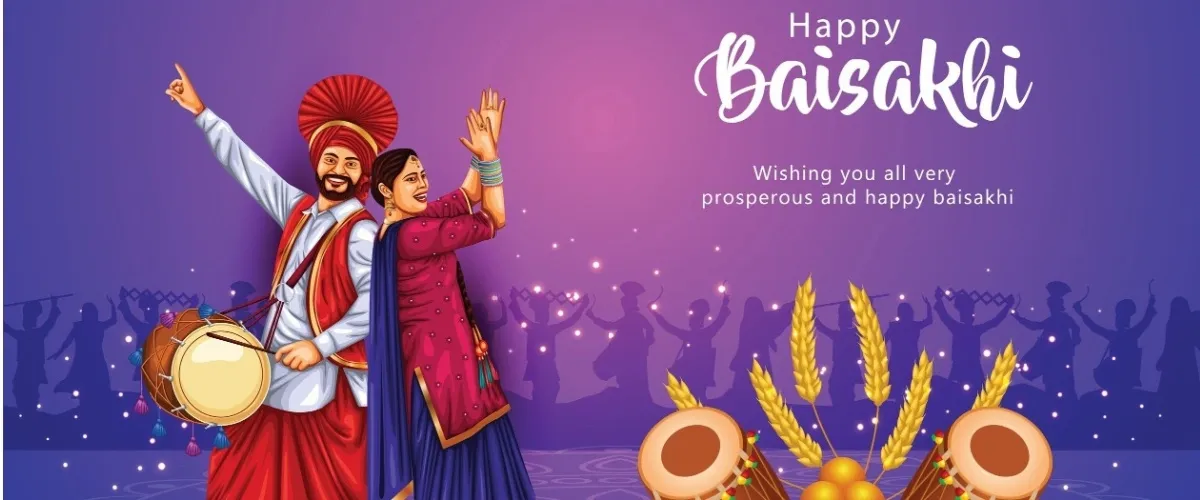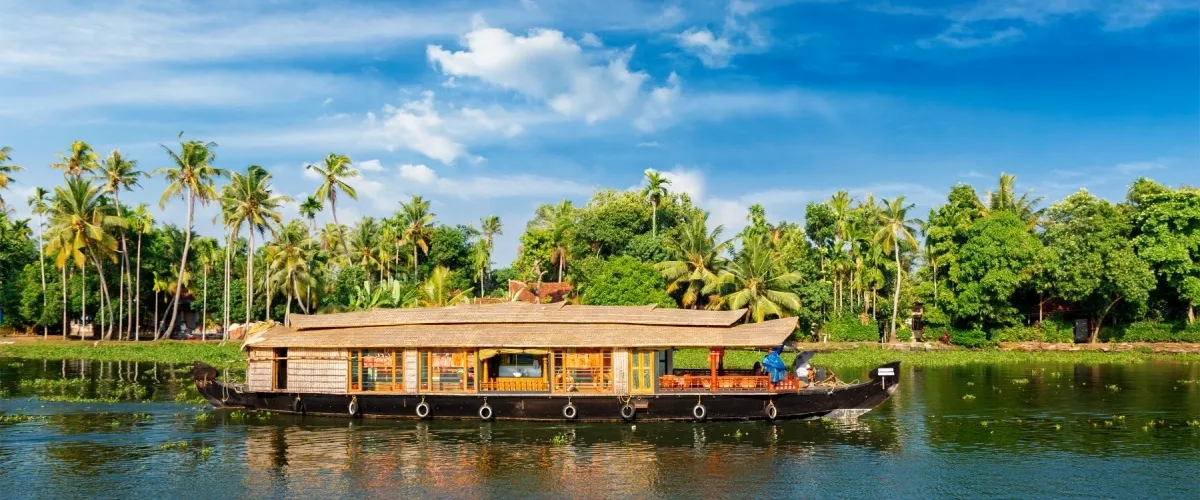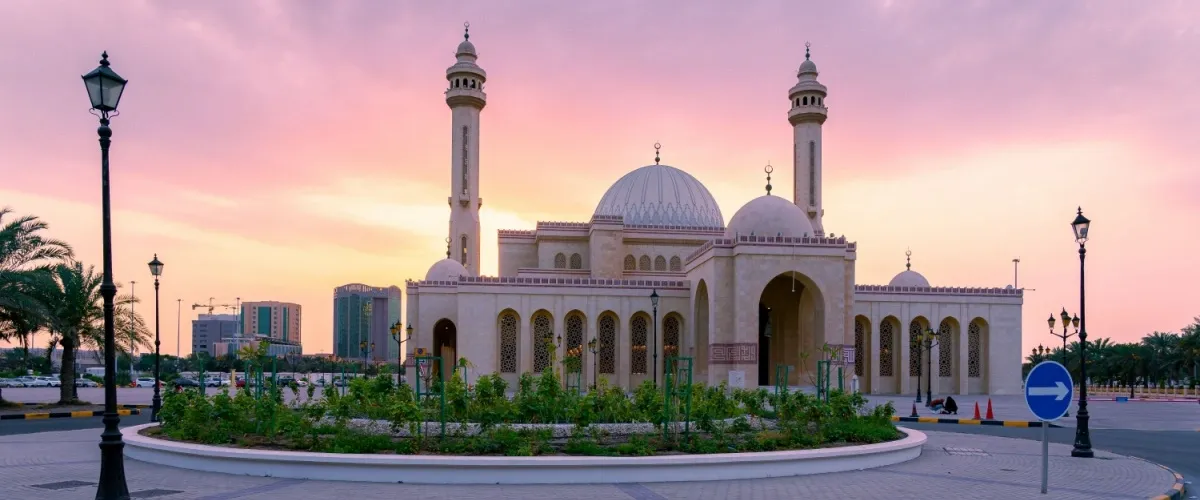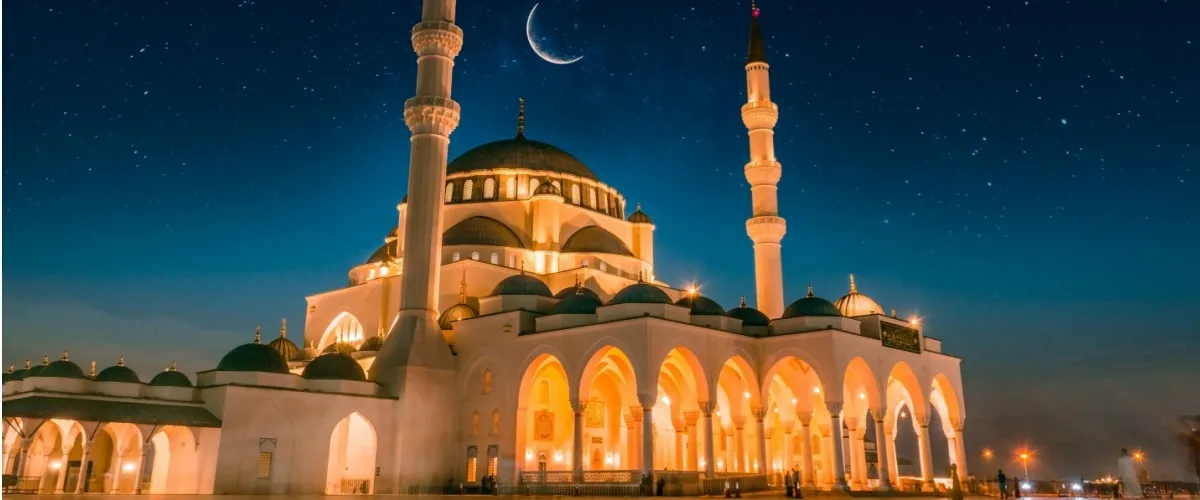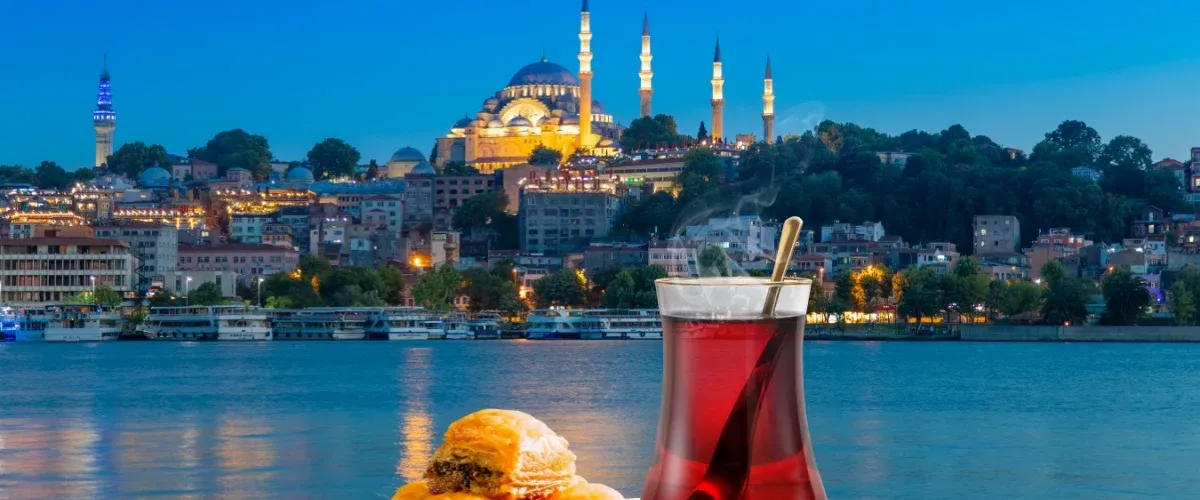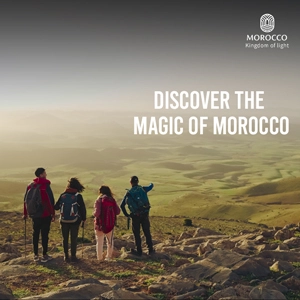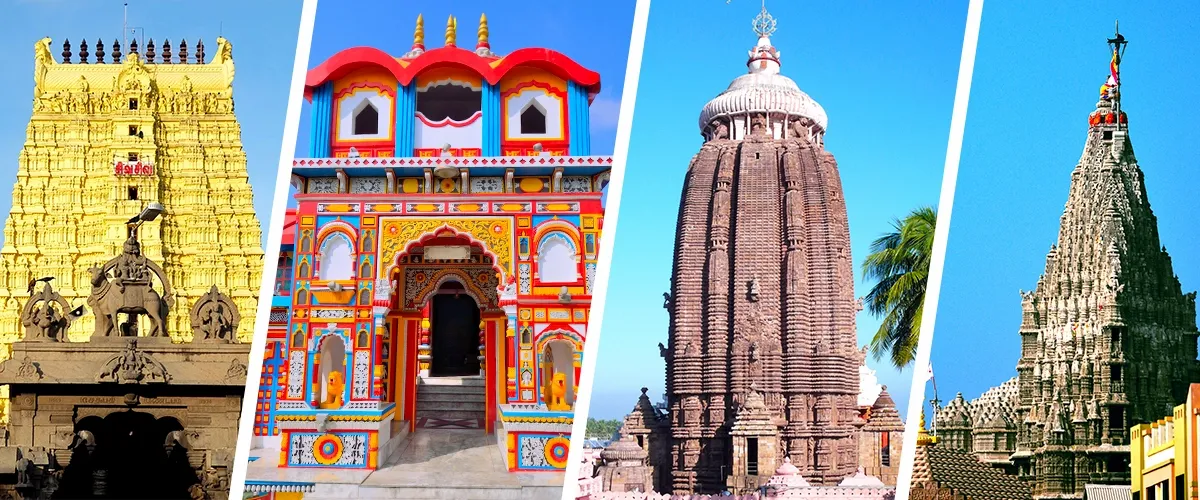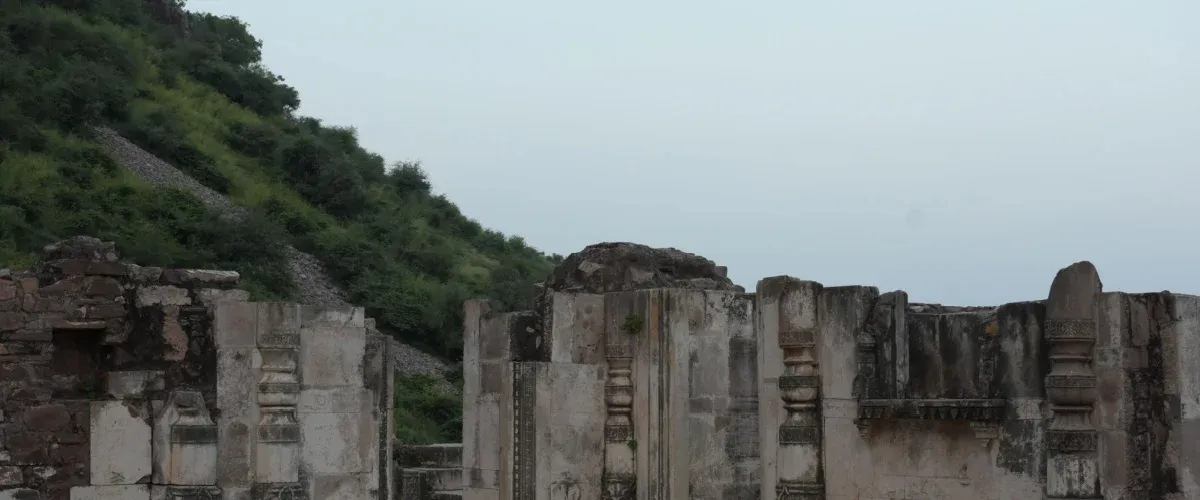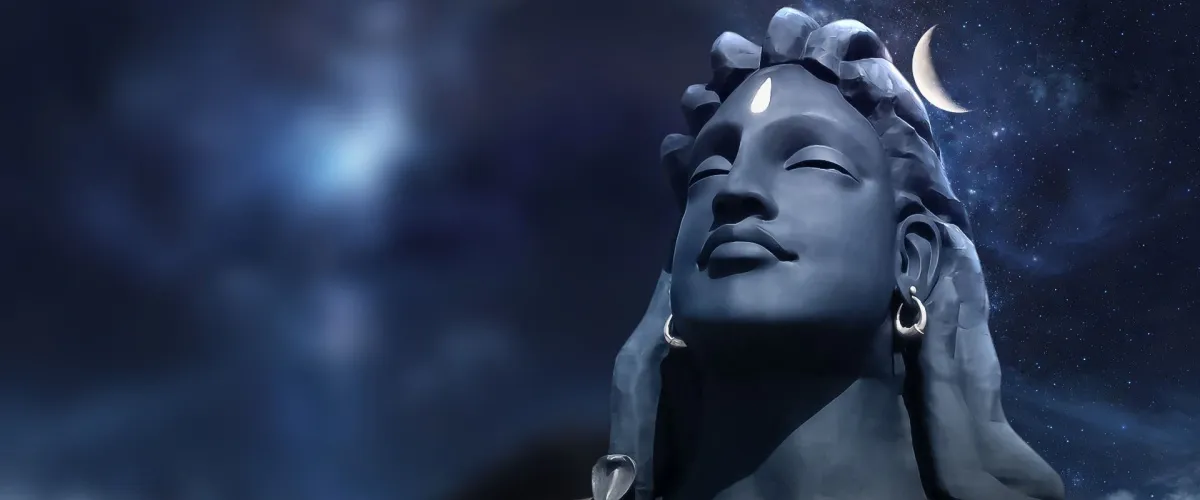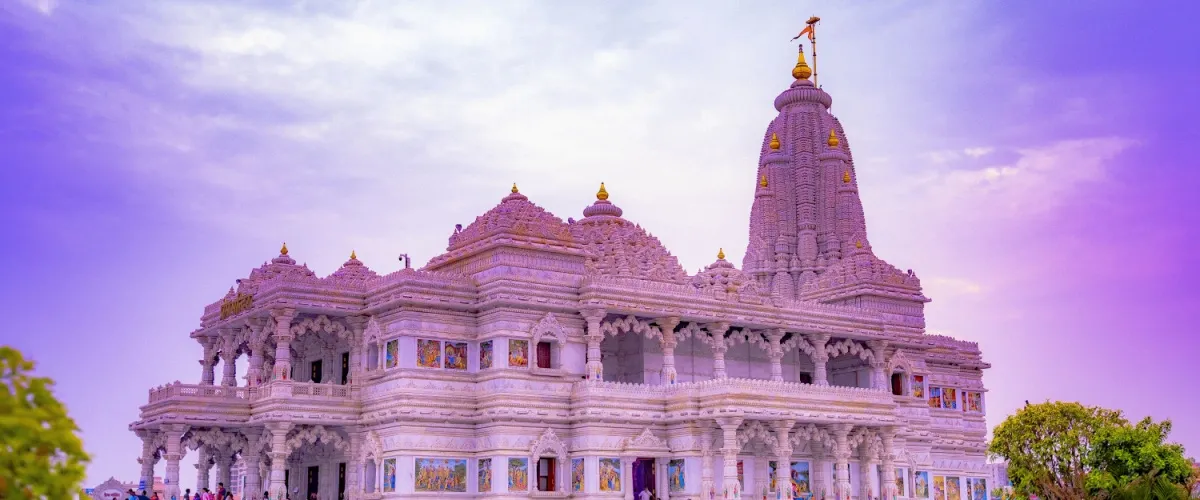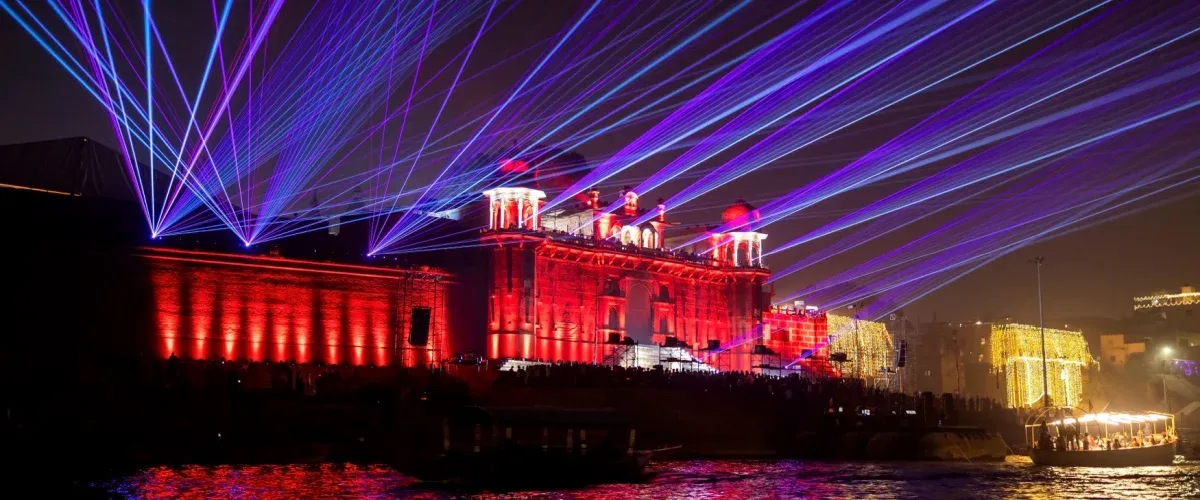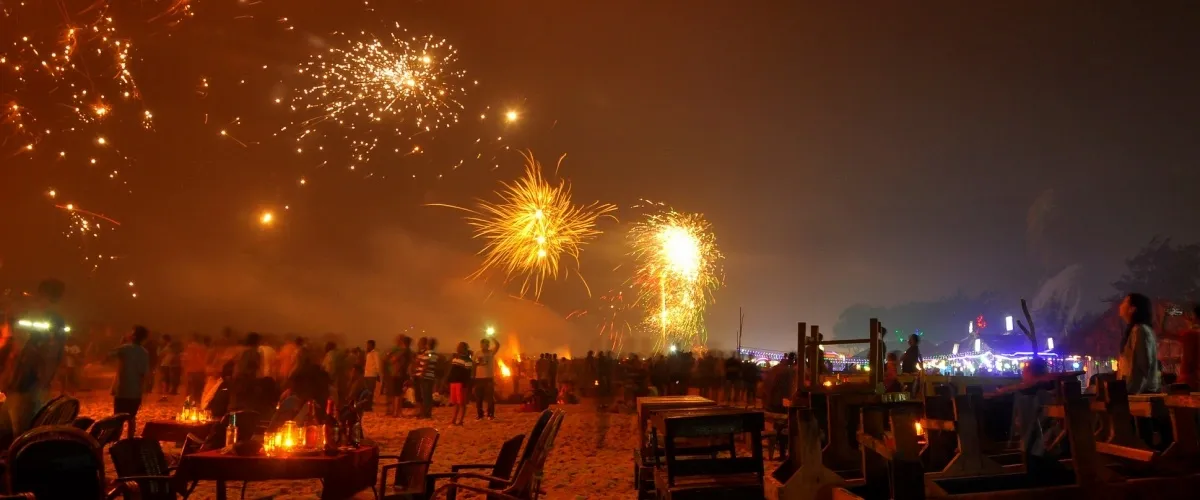Bohag Bihu, also known as Rongali Bihu, is the most vibrant and traditional festival in Assam. The name Rongali is derived from the word “Rong”, which means conglomeration of colours. Basically, there are three Bihu festivals celebrated in Assam which are Bohag Bihu or Rongali Bihu, Kati Bihu or Kongali Bihu, and Magh Bihu or Bhogali Bihu. Bohag Bihu is the major one among all the three Bihu festivals and is celebrated for seven days during the month of Bohag (Baishakh Month). In this blog, we will talk about Bohag Bihu 2025 and how it is celebrated in India. Read on!
What is the Cultural Significance of Bohag Bihu?
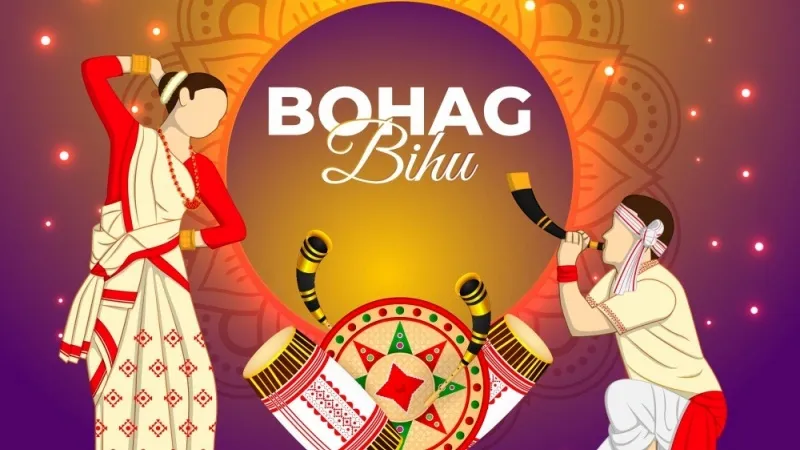
Celebrated in Assam (majorly) and other Northeastern Indian parts, this significant festival marks the Assamese New Year and arrival of the spring season. Bohag Bihu falls somewhere in the middle of the month of April (around April 15). The festival is marked with great shear and enthusiasm and brings communities together to rejoice in cultural traditions, music, dance, and feasting. Whether you're an Assamese or a cultural enthusiast, this blog will help you to learn more about this harvest festival. Happy Bohag Bihu wishes from our side!
What is Bohag Bihu 2025 Date?
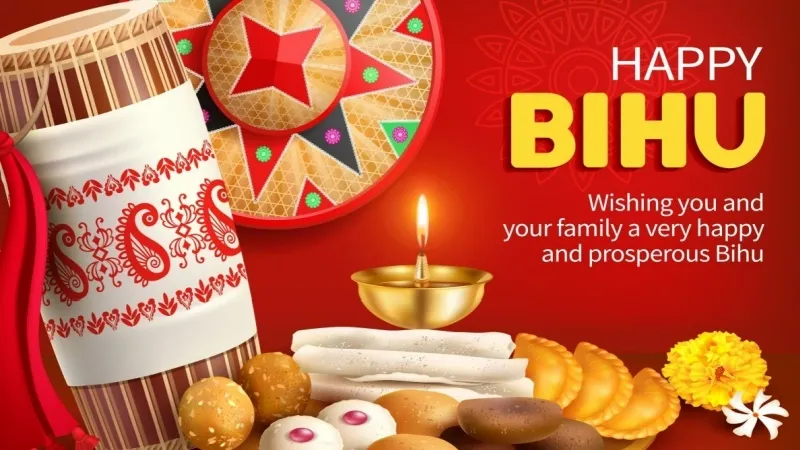
Bohag Bihu is such a festival that aligns with the solar calendar unlike many other festivals that follow the lunar calendar. Being one of the major festivals in India, Bohag Bihu is a week-long extravaganza that brings the beginning of the agricultural season. This year, Bohag Bihu 2025 will start from April 14, Monday and will continue till Sunday, 20th April 2025 with joy, prosperity, and togetherness.
Suggested Read: Places to Visit in Ayodhya: A Timeless Journey to the Ramayana Period
Importance and Celebrations of Bohag Bihu
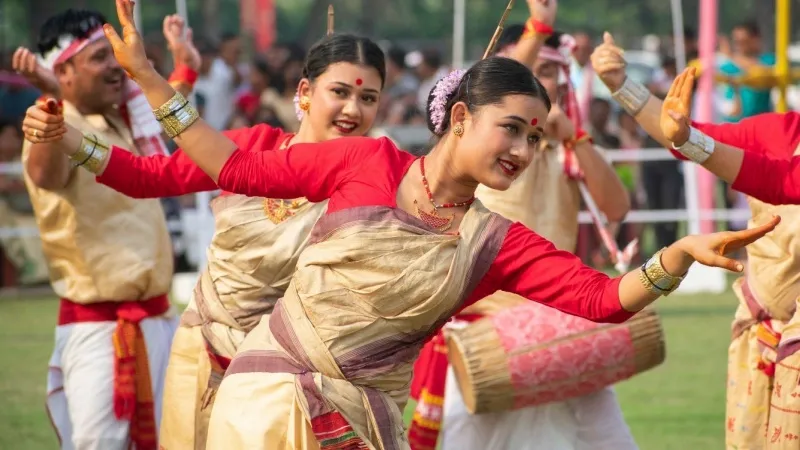
Bohag Bihu indicates the harvest season and the beginning of the spring season. It comes up with feasting, Bihu dances, and singing festivities. The celebrations of Bohag Bihu take place for 7 days. In the observance of this harvest festival, people wakeup early, take bath with raw turmeric, wear new clothes, and take blessings from elders. The seven days of this Assamese festival are known as Goru Bihu, Manuh Bihu, Gosai Bihu, Tatar Bihu, Nangal Bihu, Jiyari or Chenehi Bihu, and Chera Bihu. Here are the seven days of this festival:
1. Goru Bihu: The first day of Bohag Bihu is dedicated to cattle and farm animals as they provide them with a means of livelihood. On this day, cows and bullocks are taken to the nearby rivers or ponds and are offered a ceremonial bath. Their whole body is cleansed with a paste of turmeric and black gram. Horns and hoofs are adorned with garlands and their old ropes are cut. Cattle are set free for the whole day and can roam freely in any field. This is done to thank these animals for helping farmers in their farm work. In the evening, cattle return to the home and are tied with new ropes.
Suggested Read: Places to Visit in Vrindavan: Where Legends of Lord Krishna Come Alive with His Melodious Flute
2. Manuh Bihu: The second day of Bohag Bihu is Manuh (which means humans) Bihu. On this day, people wear new clothes and Bihuan gifts are exchanged. People visit their relatives and seek blessings from their elders. Women prepare traditional dishes made of flattened rice, curds, and jaggery. Groups of young men perform Husori (Bihu carols) from household to households' and offer their blessings in return of some alms and gifts.
3. Gosai Bihu: Gosai Bihu is the third day of this festival and is dedicated for the Gods. Hence, people offer worship to their household deities and seek blessings for the coming year to be a fruitful one.
4. Tatar Bihu: On the day of Tatar Bihu, the fourth day of Bohag Bihu, weavers prepare for planting by wiping and tying up their weaving tools, and people gather to sing Bihu songs and perform Bihu dances.
5. Nangal Bihu: Nangal Bihu is celebrated as the fifth day of Bihu and is dedicated to agriculture. Farmers focus on the agriculture by preparing their land for planting, often with rituals and traditional Bihu dances.
6. Jiyari or Chenehi Bihu: The sixth day of Rongali Bihu is Jiyari or Chenehi Bihu. It is the day when married daughters return to their parental home, and the day is celebrated as a time of reunion and festivity.
Suggested Read: Places to Visit in Uttarakhand: Discover the Spectacular Treasures of India
7. Chera Bihu: The last day of Bihu is called Chera Bihu that marks the feasting of Pithas and visiting elders to seek their blessings. People wrap up the celebrations with contemplation and future resolutions.
How is Bohag Bihu 2025 Celebrated in India?
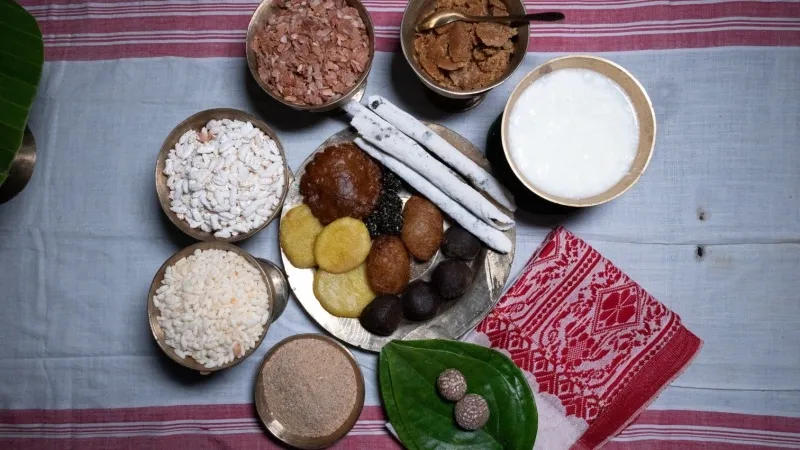
Bohag Bihu is a week-long festival marked by traditional rituals, delicious traditional dishes, and amazing cultural performances. Here is the glimpse of the celebrations take place during the whole week:
- Rituals: People rise early, take holy baths with auspicious pastes, wear new clothes, and seek blessings from their elders. Also, people exchange Gamosa, a traditional Assamese scarf to spread love and joy.
- Feasting: Women prepare traditional Assamese dishes like Pitha, laddoos, and Masor Tenga with an array of traditional delicacies.
- Cultural Performances: A group of young men and women perform Bihu dances in traditional attire on the beats of dhol and tunes of pepe (flute). This is one of the major things to do in India on Bohag Bihu, especially in Assam, to captivate spectators and promote lively spirit of Bohag Bihu.
Suggested Read: Beautiful Temples in South India: That Sing the Glory of Sanatana
Cultural Significance of Bohag Bihu in India
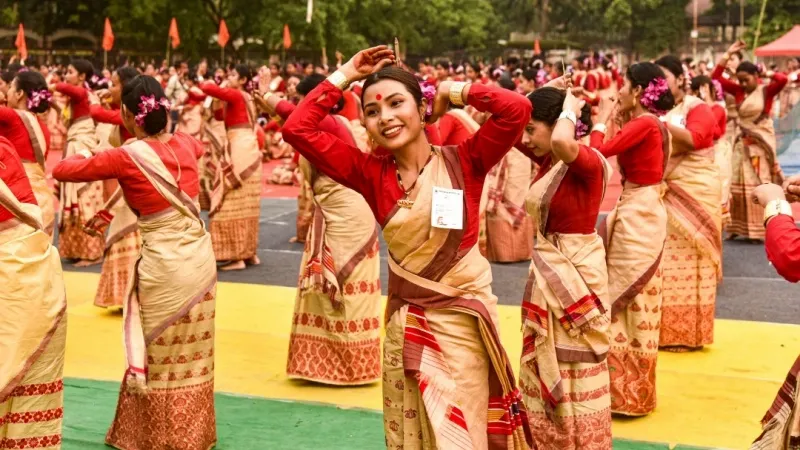
Bihu is not just a festival; it's an emotion for the people in Assam. It is the key element of Assamese identity that promotes the rich cultural heritage in Assam by connecting them with music, dance, and folklore. Some legends claim about this festival to have connections with the Ahom Kingdom that existed from 1228 to 1826. It was a late medieval kingdom in the Brahmaputra Valley of present-day Assam.
The mythological connections of the Bohag Bihu festival are also linked to the worship of Hindu Gods like Krishna and Shiva and symbolize fertility and prosperity. Also, Assam is one of the best places to visit in India in summer due to two reasons. The first one is its mild and pleasant temperature that provides a perfect summer escape for everyone. The most important and major reason is this Bohag Bihu 2025 festival which is celebrated during the month of April. So, what could be a better time than this auspicious Assamese festival?
Let's talk about the major key roles of Bihu in Assamese culture.
- It serves as a platform to promote traditional music and dance forms (Bihu dance)
- Encourages the Assamese language and folklore
- Promotes communal unity across different age groups and communities
- It is linked with the agricultural calendar and marks the different stages of the farming cycle.
Suggested Read: Jyotirlingas in India: The Ultimate Source of Divine Grace
Bohag Bihu (or Rongali Bihu) 2025 is more than just a spring festival; it is the celebration of togetherness, joy, Assamese culture, reunion, and spirit. It's a seven-day week festival that is marked with joy and enthusiasm. Throughout the festival, people wear traditional attires, specially made from muga silk, sing traditional Bihu songs, and perform traditional dance. Isn’t this Assamese festival worth attending? Interested ones can book one of the Assam tour packages and immerse themselves in the festivities and cherishing traditions.
Bohag Bihu 2025 – FAQs
Bohag Bihu or Rongali Bihu is the Assamese New Year and is celebrated on the first day of the Hindu month of Chaitra. It is a seven-day festival, and it will be celebrated from April 14 to April 20 this year. It is a festival of integrity, respect, and community bonding to honour the rhythm of life and the agricultural cycle.
Bohag Bihu 2025 is scheduled to be celebrated from 14th to 20th April 2025 with honour, prosperity, and togetherness.
This vibrant Assamese festival is celebrated over seven days with feasting, dancing, and visiting to family and friends. A group of young men and women perform Husori, visit from homes to homes, sing traditional songs, and offer blessings.
Here we have listed some famous Assamese Bohag Bihu quotes to wish someone on this festival including:
- "Bohag aale, Bihu aale, मनोर ভোৰ (Manor Bhor – Dawn of happiness)!": (Bohag has come, Bihu has come, Dawn of happiness!)
- "সকলোকে ৰঙালী বিহুৰ আন্তৰিক শুভেচ্ছা।": (Best wishes for Rongali Bihu to all!)
- "নতুন বছৰৰ বাবে মোৰ আন্তৰিক শুভকামনা।": (My heartfelt wishes for the new year!)
- "নতুন বছৰটো আপোনাৰ বাবে সুখ আৰু সমৃদ্ধিৰে ভৰ্তি হওক।": (May this new year be filled with happiness and prosperity for you!)
আনন্দিত বহাগ বিহুু । This is how we say Happy Bohag Bihu in Assamese.
Some must-try Assamese dishes to try on Rongali Bihu are mentioned below.
- Pitha (rice cakes)
- Laru (jaggery and coconut sweets)
- Masor Tenga (tangy fish curry)
- Aloo Pitika (mashed potato dish)
- Khar (an alkaline extract dish)
There are three types of Bihu festival celebrated in Assam. They are Bohag Bihu (Rongali Bihu), Bhogali Bihu (Magh Bihu) and Kongali Bihu (Kati Bihu).
Bihu is a vibrant Assamese harvest festival celebrated around mid-April and is crucial for its cultural significance, agricultural ties, and communal spirit. It marks the Assamese New Year and the cycle of sowing and harvesting with joy and tradition.

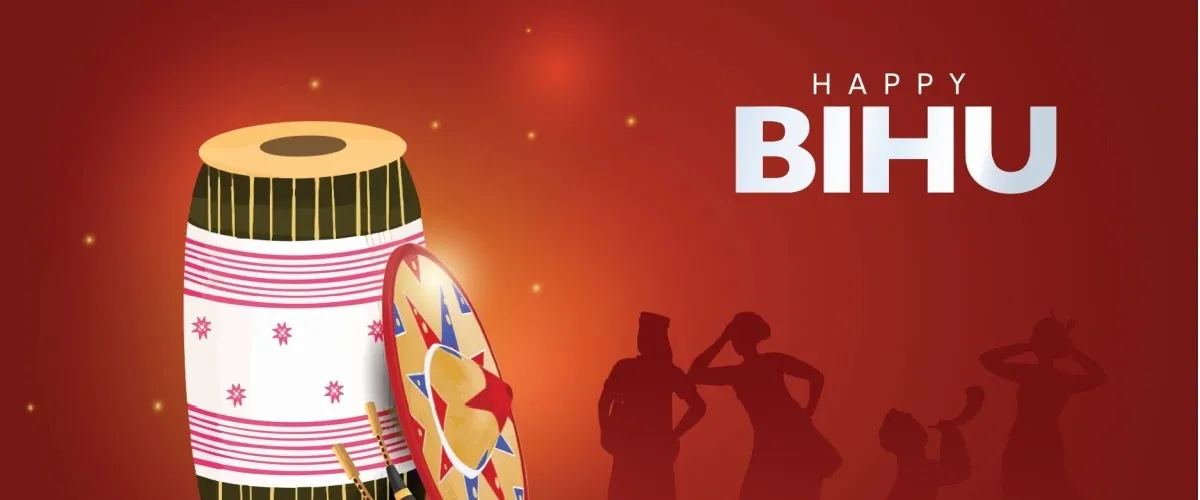


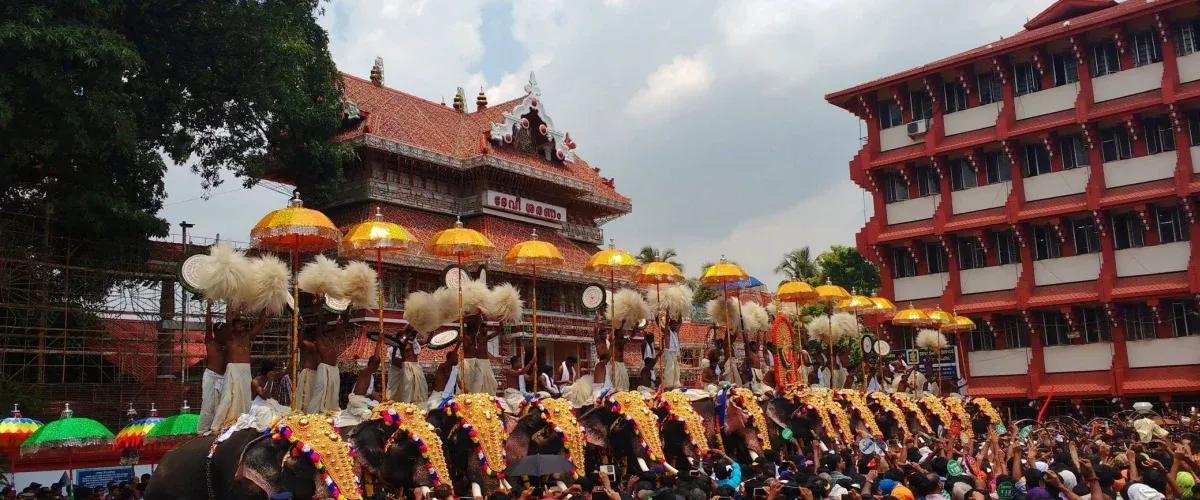
.webp)
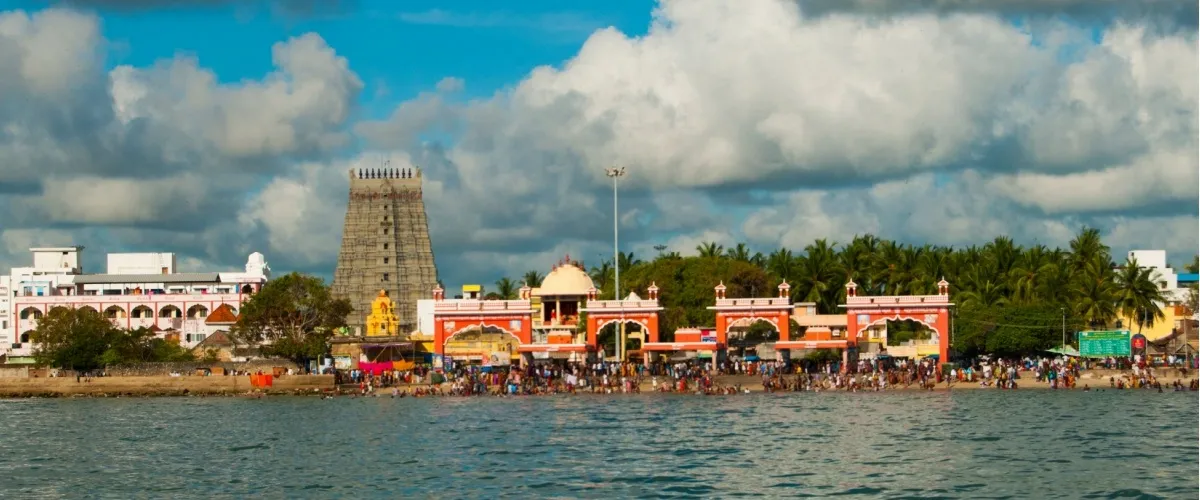

.webp)
